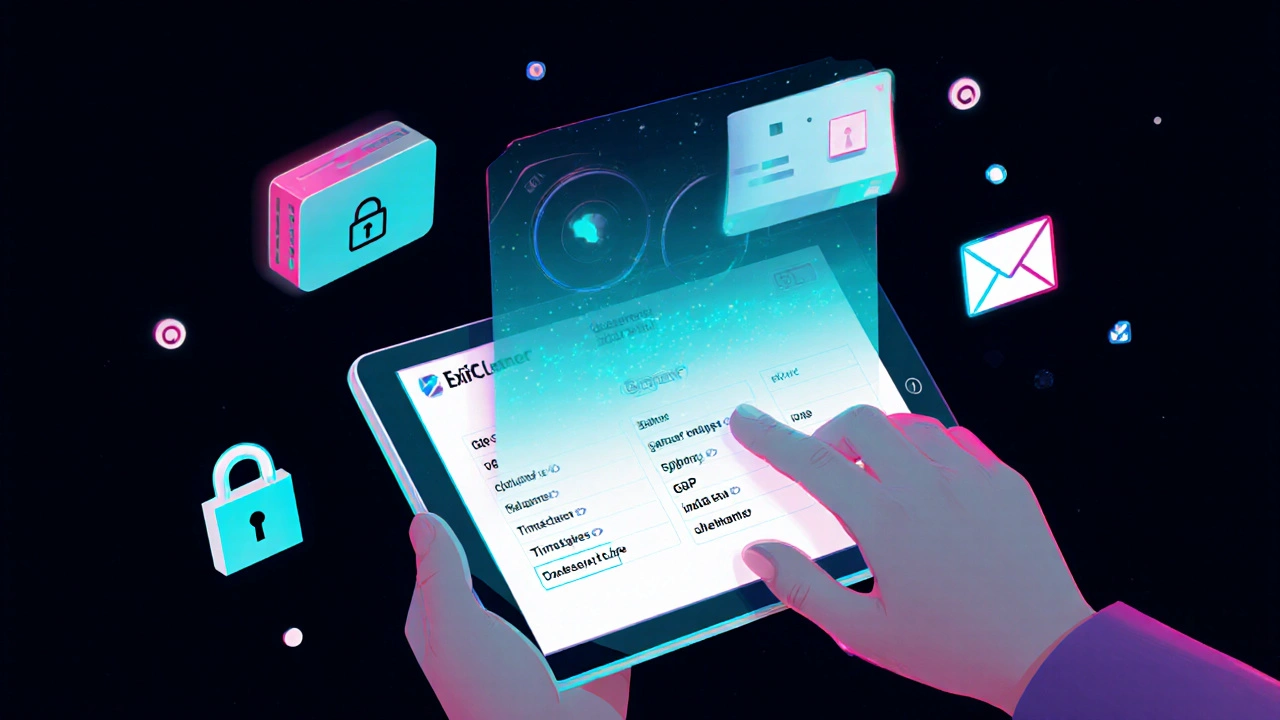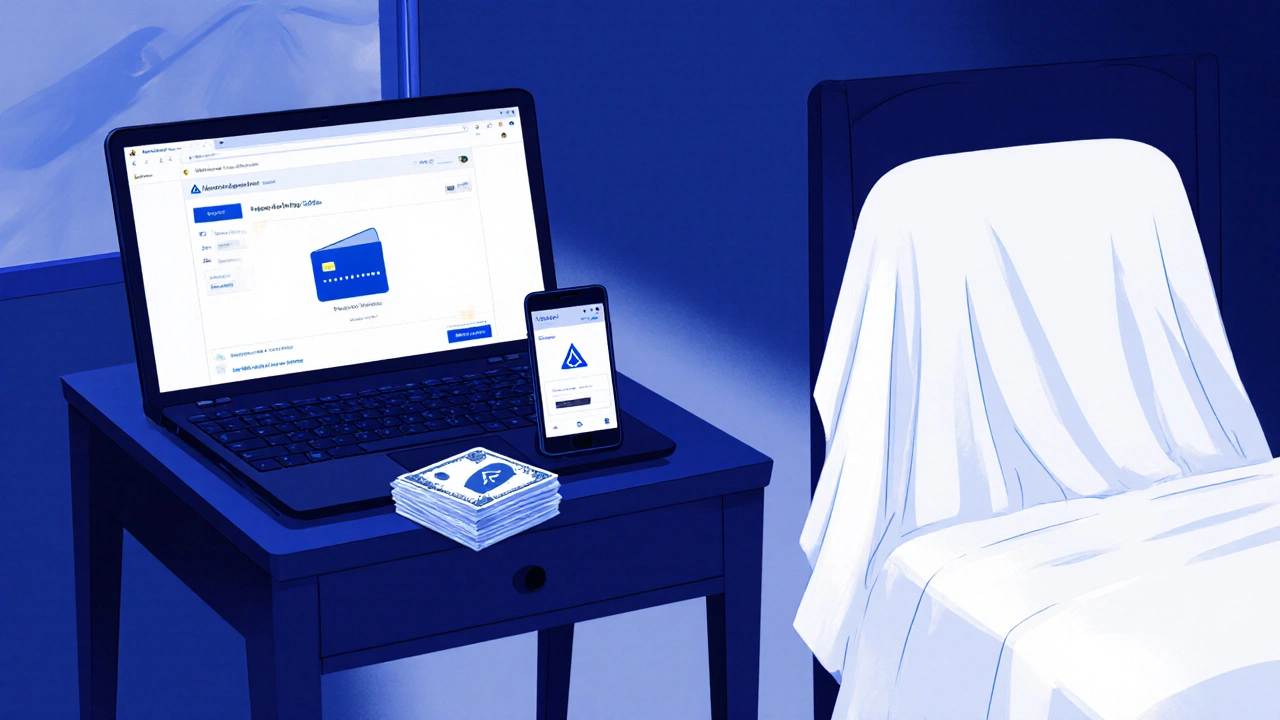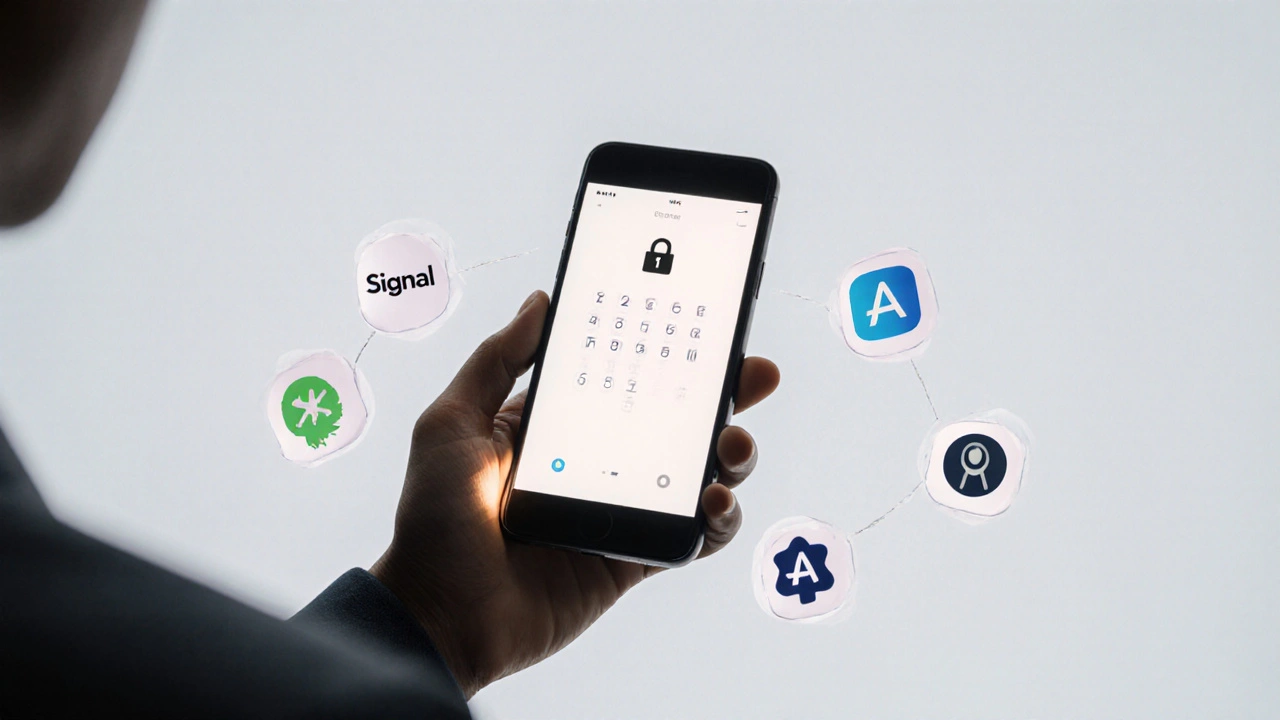If you’re a sex worker, your phone isn’t just a tool-it’s your office, your bank, your diary, and your lifeline. But every text, every photo, every login could be a doorway for someone to ruin your life. Stolen photos. Doxxed addresses. Suspended accounts. Harassment. Even arrest. This isn’t fearmongering. It’s reality. And the good news? You don’t need to be a tech expert to stop it.
Start with your phone
Your phone holds everything: client messages, payment records, location history, and photos. If it’s compromised, you’re exposed. The first thing to do is lock it down. Use a strong passcode-not 1234, not your birthday. Use a 6-digit or alphanumeric code. Turn on biometric lock (fingerprint or face ID), but don’t rely on it alone. Biometrics can be forced. A passcode can’t.Enable full-disk encryption. On iPhones, it’s on by default. On Android, go to Settings > Security > Encryption. If it says "encrypted," you’re good. If not, back up your data, then reset the phone and set it up again. Encryption means if someone steals your phone, they can’t read your files without the passcode.
Turn off iCloud backups for photos. Seriously. If you back up your photos to iCloud, Apple holds them. If law enforcement or a hacker gets a warrant, they can get your private images. Instead, use a local encrypted app like Signal is a secure messaging app that encrypts messages end-to-end and doesn’t store your data on servers. Also known as Signal Messenger, it was developed by the nonprofit Signal Foundation and is used by journalists and activists worldwide. for photos. Or store them on a locked external drive you keep in a safe place.
Use separate accounts for work and personal life
Never use your real name, email, or phone number for work. Create a new email address just for clients. Use ProtonMail or Tutanota-they’re encrypted, don’t ask for your real info, and let you sign up without a phone number. Don’t use Gmail or Outlook. They track everything.Same goes for social media. If you use Instagram, OnlyFans, or Twitter for business, make a separate account. Don’t link it to your personal profile. Don’t post from the same device you use for family or friends. Use a burner phone or tablet just for work. Even better-use a different Wi-Fi network. Public Wi-Fi at a café is safer than your home router, which can be traced back to your address.
Enable two-factor authentication (2FA) on every work account. But don’t use SMS. Hackers can intercept text codes. Use an authenticator app like Authy is a two-factor authentication app that generates time-based codes without needing a phone number. Also known as Authy 2FA, it allows backup codes synced across devices and works offline.. Download it on your work device only. Write down the recovery codes and store them in a sealed envelope in a safe place. Not on your phone. Not in the cloud.
Photos are your biggest risk
Photos are the most dangerous thing you have. They can be used to identify you, track you, or blackmail you. Even if you blur your face, metadata can give you away. Your phone records GPS coordinates, the exact time, the model of your camera, and even the serial number of your device. That data is hidden in every photo.Before you send a photo, strip the metadata. On iPhone, open the photo in the Files app, tap Share, then "Save to Files." Then use an app like ExifCleaner is a mobile app that removes location and device data from photos before sharing. Also known as Exif Cleaner, it works on both iOS and Android and is used by journalists and sex workers for privacy. to wipe it clean. On Android, use Photo Exif Editor is a free Android app that lets you delete GPS, camera model, and timestamps from images. Also known as Photo Exif, it’s lightweight and doesn’t require sign-up.. Always do this before sending anything.
Never take photos in your home. Even if you think you’re alone, things give you away: a poster on the wall, a unique lamp, a brand of tea in the kitchen, a street sign outside the window. Use a hotel room you pay for with cash. Or rent a private studio for a few hours. If you must shoot at home, use a plain white sheet as a backdrop and shoot near a window with no visible landmarks.

Secure your payment accounts
Most sex workers use PayPal, Venmo, Cash App, or crypto. But these services have strict policies. They freeze accounts without warning. And they can hand over your real name, address, and transaction history to law enforcement.Use a business bank account under a pseudonym. Some banks allow it if you register as a sole proprietor. If that’s not an option, use a prepaid debit card loaded with cash. Buy it at a convenience store with no ID required. Use it only for work income. Don’t link it to your personal account.
If you use crypto, stick to Monero. Bitcoin is traceable. Every transaction is public. Monero hides sender, receiver, and amount. Use a wallet like Monero GUI Wallet is a desktop application for securely sending and receiving Monero cryptocurrency with full privacy. Also known as Monero Wallet, it’s open-source and doesn’t require registration.. Never use exchange platforms like Coinbase. They know who you are. Use a peer-to-peer exchange like LocalMonero is a decentralized peer-to-peer platform for buying and selling Monero with cash or gift cards. Also known as LocalMonero, it allows anonymous trades without KYC.. Pay in cash when you can. Cash leaves no trail.
Keep your communication private
Text messages, WhatsApp, Telegram-they’re not safe. WhatsApp is owned by Meta. Telegram stores messages on their servers unless you use Secret Chats. Even then, screenshots are still possible.Switch to Signal is a secure messaging app that encrypts messages end-to-end and doesn’t store your data on servers. Also known as Signal Messenger, it was developed by the nonprofit Signal Foundation and is used by journalists and activists worldwide.. It’s the most secure free app available. It doesn’t store your contacts. It doesn’t track when you’re online. It doesn’t link to your phone number if you use a burner. Use it for everything: scheduling, negotiating, checking in.
Never use your real name in messages. Use a nickname. Don’t say your city unless you have to. Say "near the river" instead of "Perth." Say "tonight at 9" instead of "Friday at 9 PM." Be vague. The less you say, the less they can use against you.

What to do if something goes wrong
If your photos are leaked, don’t panic. Don’t respond. Don’t beg. Don’t try to delete them from everywhere-that’s impossible. Instead, document everything. Take screenshots of where they appear. Save URLs. Write down dates and times.Report the leak to the platform. Most have policies against non-consensual sharing. If it’s on a social media site, use their reporting tool. If it’s on a forum or website, contact the host. If you’re in Australia, you can report to the eSafety Commissioner. They can force removals.
If your account is suspended, don’t try to appeal with personal details. Create a new account with a new email, new phone number, new device. Start fresh. Your safety is more important than your old profile.
If you’re threatened or blackmailed, don’t pay. Paying only encourages more demands. Save all messages. Contact a sex worker advocacy group like SWOP or Scarlet Alliance. They can help you navigate legal options and connect you with support.
One last thing: trust no one
No client. No friend. Not even your partner. People you trust can leak your info. Someone might screenshot your messages. Someone might accidentally tag you in a post. Someone might get hacked and your data leaks with theirs.Assume everything you do digitally can be seen by someone you don’t know. That’s not paranoia. That’s strategy. The goal isn’t to be perfect. It’s to be harder to hurt. Make your digital life a locked room. Only you have the key.
Can I use my regular phone for sex work?
It’s risky. Your phone has your real name, contacts, location history, and personal photos. If it’s seized or hacked, you’re exposed. Use a separate device-preferably a cheap, unlocked phone bought with cash. If you must use one phone, create a separate user profile on Android or use a work folder on iPhone. Never mix personal and work data.
Is it safe to use OnlyFans or similar platforms?
They’re convenient but dangerous. OnlyFans can freeze your account without warning and share your details with banks or law enforcement. Use a pseudonym, a burner email, and never link your real identity. Avoid posting anything that shows your face, tattoos, or home background. Consider using platforms like Fanbox or ManyVids, which have slightly less aggressive moderation policies.
Should I use a VPN for sex work?
A VPN hides your IP address, but it’s not enough. Many free VPNs sell your data. If you use one, pick a no-log provider like Mullvad or IVPN. But don’t rely on it alone. Use it with encrypted apps, burner accounts, and clean devices. A VPN won’t protect you from screenshots, metadata, or account bans.
How do I know if my phone is being tracked?
Signs include sudden battery drain, apps running in the background, weird pop-ups, or your phone heating up for no reason. Install a trusted antivirus like Malwarebytes is a security app that detects and removes spyware and tracking software from mobile devices. Also known as Malwarebytes Mobile, it’s used by privacy-focused users to scan for hidden monitoring tools.. If you’re truly concerned, reset your phone to factory settings and set it up as new-don’t restore from backup.
What if I’m arrested because of digital evidence?
Do not speak to police without a lawyer. Do not unlock your phone. In Australia, police can demand access, but you have the right to remain silent. If they seize your device, ask for a receipt. Contact a legal aid group like Justice Connect or the Sex Workers Outreach Project. They can help you understand your rights and find representation.
If you’re just starting out, begin with one step: create a new email. Then, install Signal. Then, wipe metadata from your photos. Don’t try to do everything at once. Build your security layer by layer. You’re not just protecting your work-you’re protecting your future.
